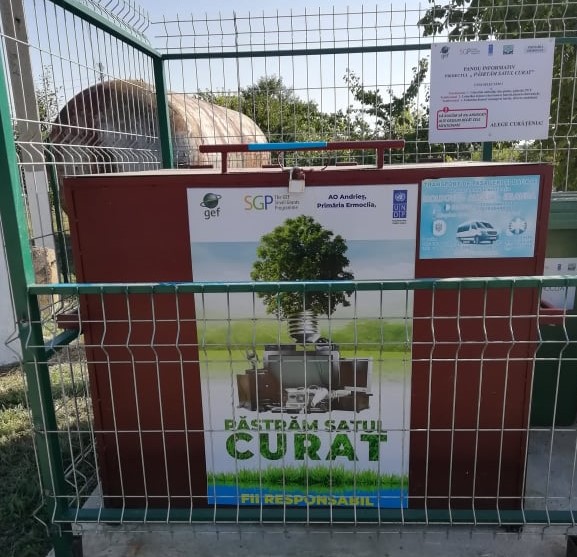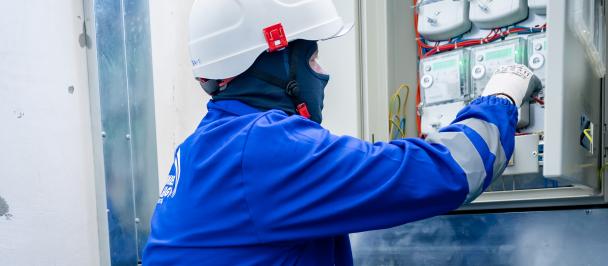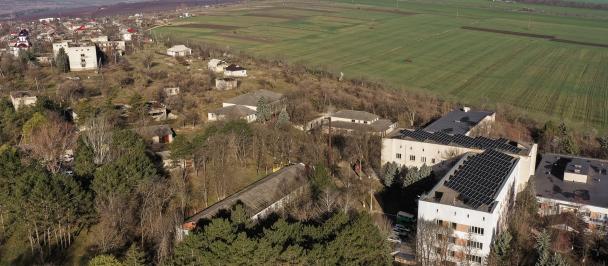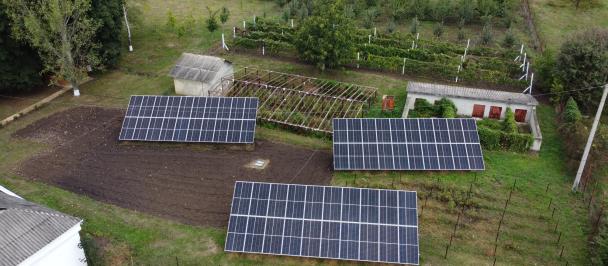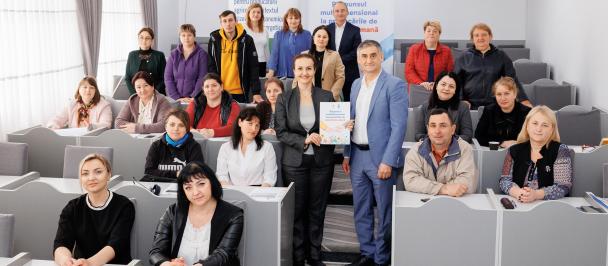Photo: UNDP Moldova
The priority actions for reducing greenhouse gas (GHG) emissions in the waste management sector in the Republic of Moldova were presented today in a video conference, organized by the EU4Climate Project, funded by the European Union and implemented by UNDP. International experts have analyzed national strategies and action plans in the field, identifying existing gaps and outlining priorities for the coming years.
The recommendations addressed the gaps in the existing primary and secondary legislation and the missing ones, which is to be developed. Participants have developed a checklist for investment projects in the waste sector, in terms of climate impact.
In 2016, about 10.7% of greenhouse gas emissions in Moldova came from the waste management sector, especially from solid waste. Overall, GHG emissions were amounted to about 1.565 million t CO2e per year.
"In the second National Determined Contribution, Moldova has committed to unconditionally reduce, by 2030, GHG emissions from the waste sector by 38% and up to 47% compared to 1990, conditioned by access to finance and technology. A significant amount of work is needed to adapt national and sectoral documents, including the Low Emission Development Strategy, to achieve the proposed objectives, and EU support and experience in this area are very valuable," said the State Secretary within the Ministry of Agriculture, Regional Development and Environment, Dorin Andros.
According to the Waste Management Strategy for 2013-2027, 7 solid waste landfills, 34 transfer stations and two mechanical and biological treatment plants in Chisinau and Balti are to be built in Moldova. Currently, only between 60 and 90% of municipal household waste is covered by specialized waste collection services, while in most rural localities it is dumped without authorization.
In some European countries, GHG emissions in the solid waste management sector have been halved through a series of successful policies introducing extended producer responsibility, separate waste collection including organic waste, increased recycling and energy recovery.
“In the EU as a whole, greenhouse gas emissions from waste have fallen by 42% in the last 20 years, according to estimates by the European Environmental Agency. In fact, this happened mainly due to a reduction in the amount of landfilling thanks to waste prevention and recycling as well as the increase in the recovery of landfill gas. This outstanding result was achieved thanks to a very effective legislation (i.e. Waste Framework Directive and the Landfill Directive) which proved to be a strong driver to increase by nearly three-quarters the recycling and composting of solid waste. This not only reduced GHG emissions but also resulted in better use of primary materials and resources. The EU is now embracing the Circular Economy model, which will be a key pillar of the European Green Deal. To this extent, I believe that the Association Agreement with the EU proves to be not just a mere support for the ambitious objectives of the Republic of Moldova regarding climate change but rather it represents an unique advantage to increase the economic competitiveness of the Republic of Moldova in the global challenge on the green trajectory for economic development,” said Christian Ballarò, Programme Officer for Energy and Climate Change at the EU Delegation to the Republic of Moldova.
In rural areas of Moldova, between 0.3-0.4 kg of waste per capita is generated daily and, respectively, 0.9 kg/capita/day or more in urban areas. Annually, through sanitation services, from urban localities are transported to landfills of solid household waste about 1144-2210 thousand m3 of garbage. A total amount of about 2.8 million tons of waste is generated from the activity of enterprises.
"I am pleased to note that in the last five years waste management has become a priority for Moldova and the country is currently engaging in a series of actions meant to improve waste management at national level. With the support of the EU4Climate project, challenges and vulnerabilities of waste sector in regard to climate risks, as well as opportunities, were identified. By following up on the recommendations, Moldova could ensure reaching its target of reducing greenhouse gas emissions, which will positively impact people’s health and the environment,” said Andrea Cuzyova, UNDP Deputy Resident Representative for the Republic of Moldova.
Previously, the Republic of Moldova developed 22 National Appropriate Mitigation Actions, known as NAMA, one of which foresee the generation of 4 MW of green electricity at gas collection stations from solid waste landfills. The cost of implementing these NAMAs amounts to about $8 million, and potential financing sources are being explored.
With a total budget of 8.8 million Euros, the EU4Climate Project takes place in the period 2019-2022 and has the following components: (i) updating the Nationally Determined Contributions to the Paris Agreement; (ii) developing National Low-emission Development Strategies by 2050; (iii) the introduction and strengthening of the framework for the monitoring, reporting and verification of greenhouse gas emissions; (iv) alignment with the acquis communautaire in the field of climate; (v) integrating the climate dimension into sectoral policy documents, raising awareness and developing sectoral guidelines for the implementation of the Paris Agreement; (vi) attracting investment in climate change; (vii) better planning for adaptation to climate change.

 Locations
Locations